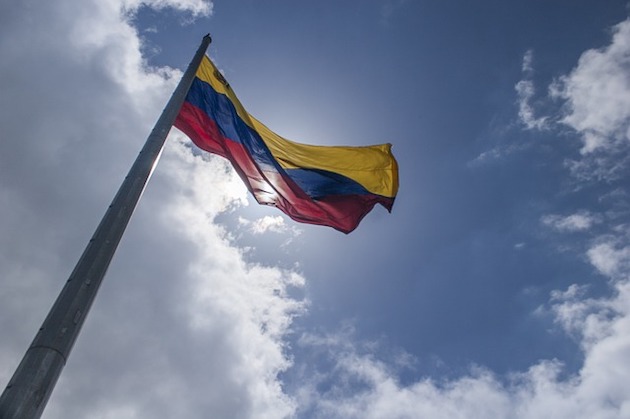Five Venezuelans living in Spain explain how they see the critical situation of their country. They point out the important role that the evangelical churches play in integration.

More and more Venezuelans leave their country in an exodus forced by the difficult circumstances that the country is going through.
Venezuela is one of the richest countries of the world in natural resources. But shortages of food and medicines, insecurity and the lack of signs for hope, are leading millions to cross the border without knowing when they will be able to return home.
Spain is and has been one of the destination countries of hundreds of thousands of Venezuelans in the last decade.
The culture, family ties -Venezuela welcomed thousands of Spanish migrants during the twentieth century- and the facilities that the government is giving in recent months to guarantee the stay in the country, are some of the factors that have made immigration easier.
The growth of the Venezuelan population in Spain is perceptible in many contexts, among them, the evangelical churches. Evangelicals in Spain have grown in the last two decades with the impetus of immigrants, most of them from Latin America.
This multicultural reality, as well as the important social assistance activity of the evangelical churches, are factors that are facilitating the integration of Venezuelans into local evangelical congregations.
LEAVING VENEZUELA
Mena Giuliano is in Valencia since October 2017. She is a pharmacist and came to Spain because of the critical situation of Venezuela. “The shortage of medicines and food, the economic devaluation, and not having any kind of stability made me not know if I could give my family what it needed”, she tells Spanish news website Protestante Digital.
 This week hundreds of Venezuelans gathered in the centre of Madrid to protest Maduro's regime. / E.García
This week hundreds of Venezuelans gathered in the centre of Madrid to protest Maduro's regime. / E.GarcíaAccording to Luisana Arias, 28 years old environmental engineer who lives in Barcelona, they felt “cornered” to the point that they could not seek a minimum quality of life “due to the policies adopted by the government”.
“There is no quality of life any more”, adds Larry Márquez, who is also in Barcelona.
Insecurity and violence have been the trigger to leave for many other Venezuelans. That is the case of Luis Troconis, architect based in Madrid, who in 2003 “was robbed, kidnapped - I was hit on the head with a gun”. The captors threatened him, warning that he could not continue with his business activity “because he had signed in the referendum against Chavez”. “That was in 2006 ... Now, in 2019, there is a murder every 16 minutes in Venezuela”, he explains.
Making the decision to leave is never easy. “I left behind everything I love most, my family; and it was even more difficult because I knew that they would continue to suffer the consequences of bad policies”, says Luisana Arias.
ANGUISH FROM THE DISTANCE
In the face of the recent news about Venezuela, feelings and sensations intermingle. Everyone has friends or relatives, who are still in the country and with whom they maintain fluid communication.
“The information that we receive is worse than what we can see or hear in the media”, says Enrique García, who has been in Spain since 2004. “The lack of food and medicine is constant. The galloping inflation and the insecurity in the streets is overwhelming”, he adds.
 Mena Giuliano.
Mena Giuliano.“My mother is still there, she is alone. She goes out less everyday. There are no products in the supermarket, hospitals are destroyed... I receive the bad news, and still you have to be there to see how bad it is”, comments Luis Troconis.
That is why he “greatly admire the people who are still there, fighting against this disguised dictatorship”.
Some of the siblings of Mena Giuliano are still in Venezuela too. “They survive thanks to a economic stability built through many years, and with the little they have, they go on. But what afflicts us is the grief of separation. The separation of the country, having left your comfort zone, the affections... Each migrant is dealing with a grief like that”.
FINDING A PLACE AT CHURCH
Integration in a new country, despite sharing the same language, is not easy. “I had to see racism and discrimination”, points out Luis Troconis, who in 2006 was the only foreigner of his class pursuing a master's degree in Madrid. “Even today, when they hear my accent, sometimes they change their attitude. Even now that I'm looking for an apartment or a room. But little by little it's getting better”.
Venezuelans really appreciate the chance to find, in the evangelical churches, a community that is accompanying them and helping them to integrate. “I met a group of people within the church who have helped me in this process of adaptation”, says Luisana Arias, who is in Barcelona. Larry Márquez, who is also there, thanks “the love, the reception and the help given”.
 Luis Troconis.
Luis Troconis.For Mena Giuliano, in Valencia, the experience is being positive. "It's a welcoming city, the people are nice”.
Additionally, “not a month went by, when God put me on the road to two Christian sisters who welcomed me and have helped me infinitely through the church. I have felt so blessed”, she recalls.
The difficulty, she adds, is still in the workplace where she believes that “it is difficult to integrate a Venezuelan citizen”.
WAITING FOR A CHANGE
What can happen in Venezuela in the coming months in the political scene? Our interviewees recognize the difficulty of being able to predict it in a country with such a critical and polarized situation.
The proclamation of Guaidó as interim president has brought hope to many Venezuelans in the diaspora.
“My expectation is that, God willing, the tyranny will be over”, says Enrique García, very critical of the Maduro government. However, “that will be the beginning of a long process of reconstruction and reconciliation that will not be easy either”.
Larry Márquez hopes that there will be “a political change in the country”. A change, says Luisana Arias, that allows Venezuela to "resurface and recover from the social damage caused by the government”.
According to Luis Troconis, “it's unpredictable”, taking into account that “nobody was waiting for Chávez's death”.
“It is obvious that most want a change of government, but all institutions are corrupted. The few companies that remain, have knelt down and agreed with the regime. They still have a lot of money from the oil, now from drug trafficking”, says the architect living in Madrid.
He denounces that “it has been a terrible combination for Venezuela. Chávez promoted the expropriation of those who became rich by stealing. There is that culture of stealing, be it a thief or a policeman, to this day everything is very corrupt”.
Mena Giuliano is more cautious, recognizing the political difficulty due to the conflict of international interests that takes place in Venezuela. “It is difficult to think that it could change in the short term and become the country that it was 15 or 20 years ago. I get discouraged and I think that Venezuela is going to be stuck until those interests do not allow it to leave the hole where it is”.
Despite all that, she believes “in an immense God, that justice prevails and that this entanglement can be clarified and Venezuela would be once again the prosperous country that has always been”.
PRAY AND HELP
Our interviewees show their gratitude for the help they have received in Spain, and ask the church to keep praying.
“Pray that this period of difficulty will end soon, and that people came closer to God during this process, so that many could leave behind an idolatry sponsored by current politicians”, says Luisana Arias.
Larry Márquez asks Christians to “pray for our families, and for all the people who are in opposition to the current government”.
“We must keep on praying that God would be the King of the nation, that is the fundamental thing”, Enrique García points out.
Luis Troconis adds that “each one in Venezuela has gone his own way. God wants our good but we have become increasingly selfish. We appreciate prayer a lot”.
“We know that the prayer of the just comes to the heart of God. I think that prayer is as important as the economic aid that the church sends to Venezuela. We specially need help to cope with the grief and pain of separation. We have a great God that will provide for us”, Mena Giuliano says.
She also believes that “as a community, we should support all Venezuelans who arrive, so that they feel comforted. We need that spiritual and emotional help”, she concludes.

Las opiniones vertidas por nuestros colaboradores se realizan a nivel personal, pudiendo coincidir o no con la postura de la dirección de Protestante Digital.
Si quieres comentar o